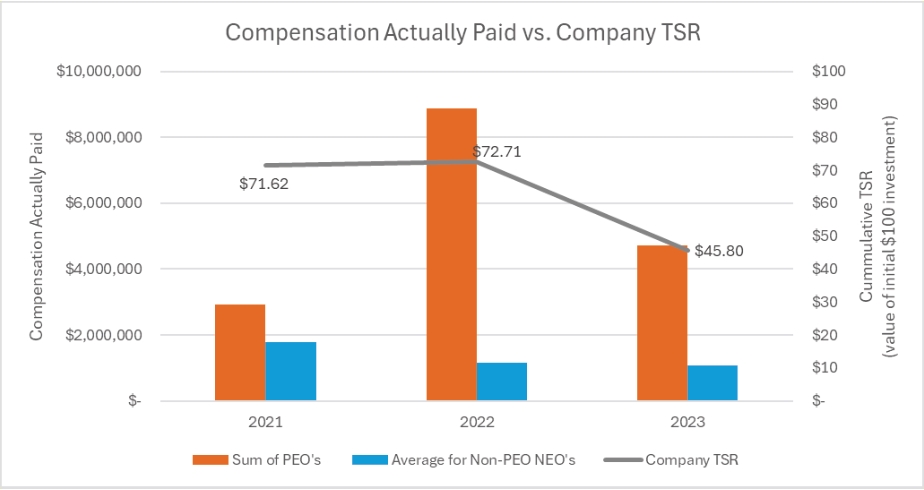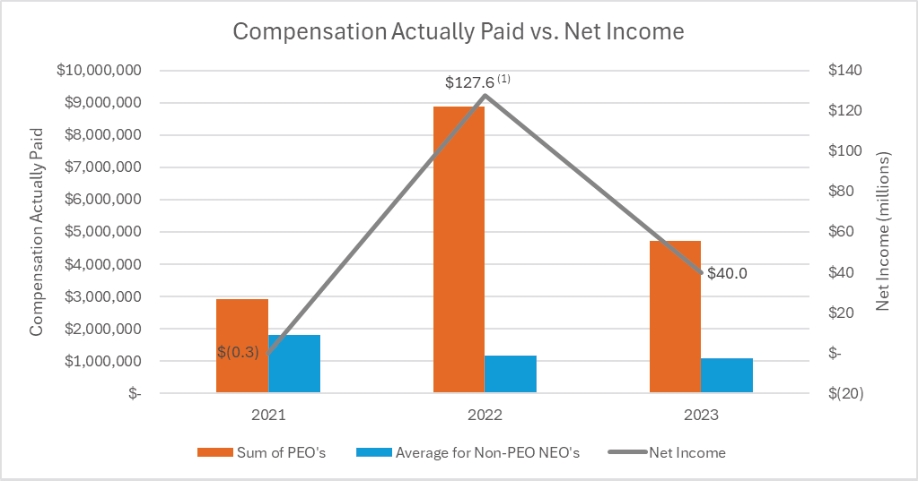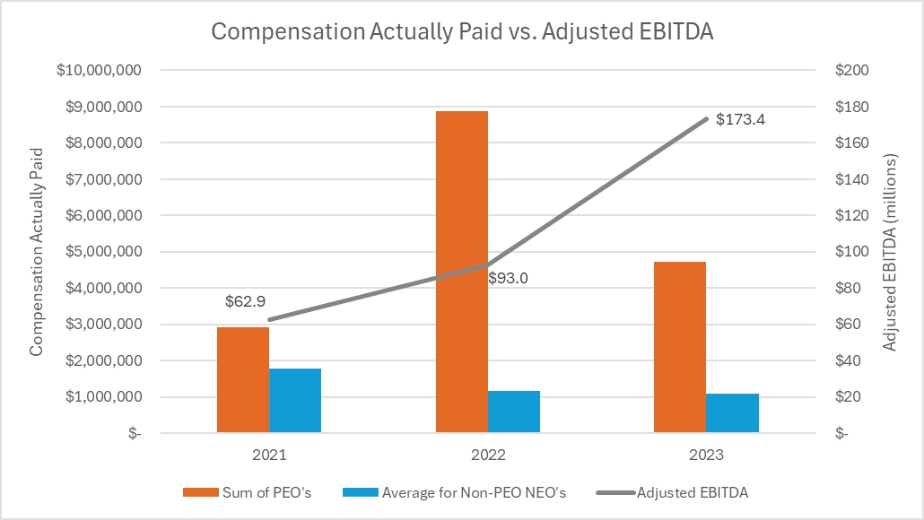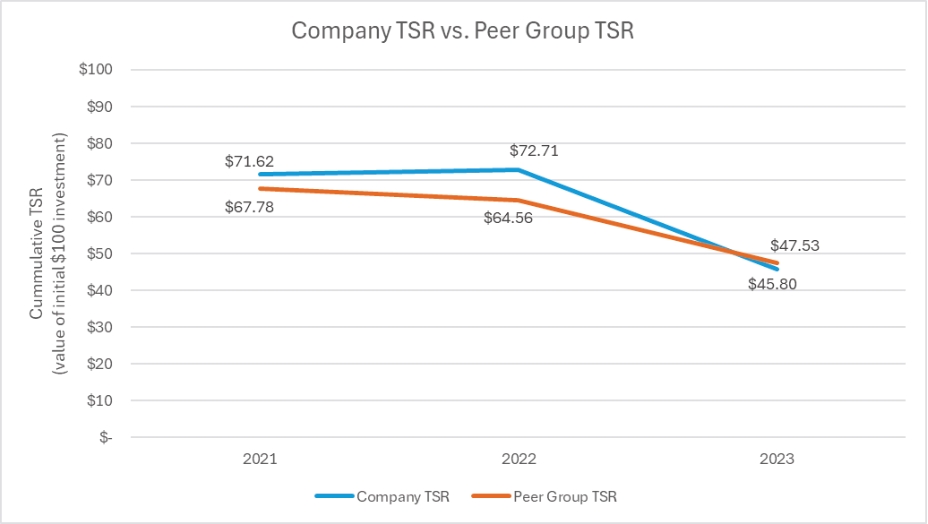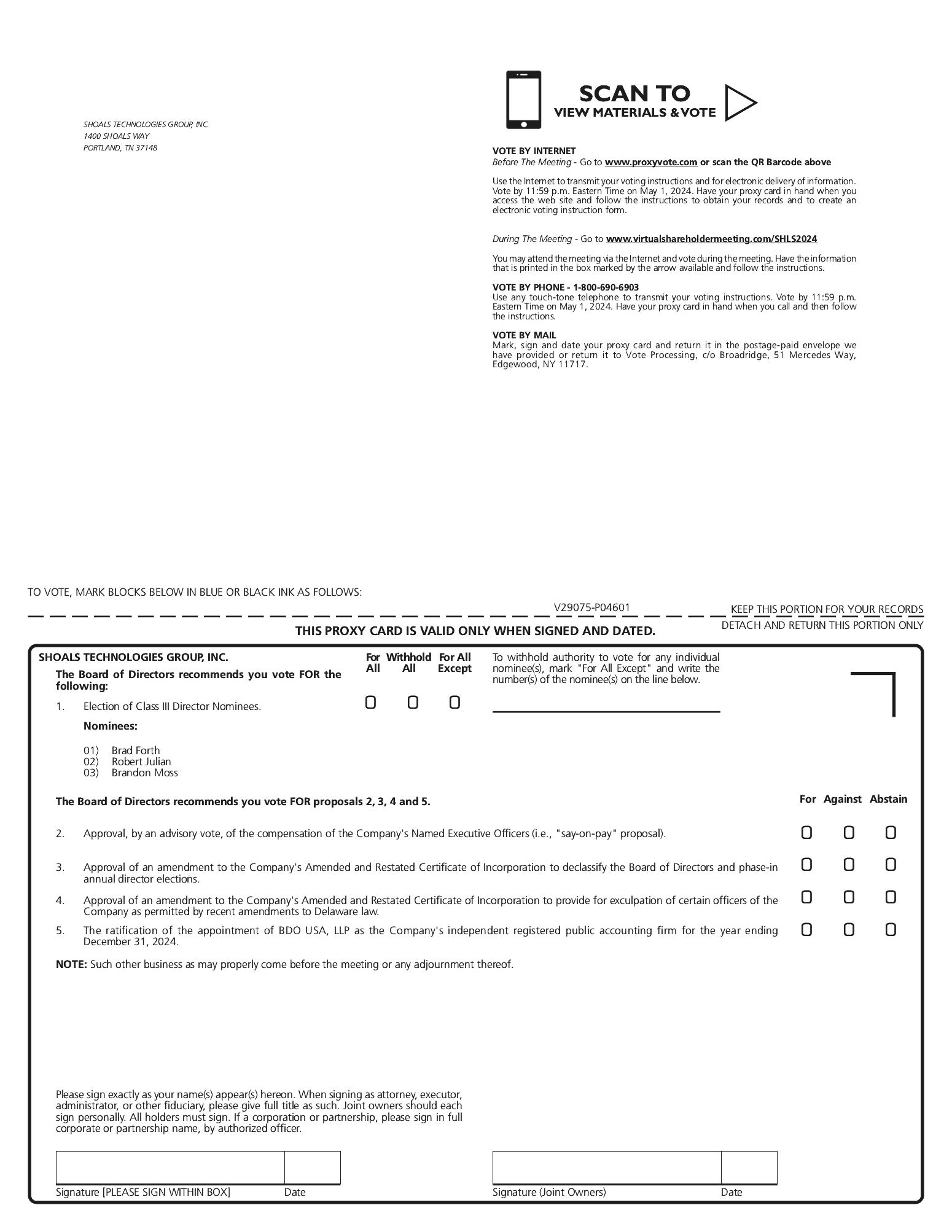solar, mini-hydro, wind, and biomass. At Enel, Mr. Volpe also served as CEO of Enel Romania, a regulated electricity distribution business that covers one third of the country. Mr. Volpe graduated magna cum laude in Management, Economics and Industrial Engineering, at Polytechnic of Milan and obtained his MBA from Columbia Business School.
The Board believes Mr. Volpe’s broad experience in the energy industry, and his expertise as a board member and senior executive in the industry for 20 years, qualifies him to serve as a director of our Board.
Peter Wilver. Mr. Wilver began serving on our Board in January 2021. From August 2015 until his retirement in March 2017, Mr. Wilver was Executive Vice President and Chief Administrative Officer of Thermo Fisher Scientific Inc. (“Thermo Fisher”), a leading provider of laboratory products and services, and had previously spent 11 years as the Chief Financial Officer of Thermo Fisher (formerly Thermo Electron) from October 2004 until July 2015. Before joining Thermo Electron in 2000, Mr. Wilver held financial leadership roles at General Electric and Grimes Aerospace Company, and at Honeywell International, where he most recently served as Vice President and Chief Financial Officer of the electronic materials business. Mr. Wilver currently serves on the Board of Directors of Baxter International (NYSE: BAX), an American multinational healthcare company, where he is a member of the Audit and Compensation and Human Capital Committees, and LivaNova PLC (NASDAQ: LIVN), a global medical device company focused on the development and delivery of important products and therapies for the benefit of patients, healthcare professionals and healthcare systems throughout the world, where he is a member of the Audit & Compliance and Compensation and Human Capital Management Committees. He has previously served as member of the board and related committees at several other public companies. Mr. Wilver is a certified public accountant. Mr. Wilver holds a Bachelor of Science in Business Administration degree (summa cum laude) in Accounting from The Ohio State University.
The Board believes Mr. Wilver’s experience in strategic planning and business development as well as in leading the financial, accounting and investor relations functions of large, multi-national manufacturing companies along with corporate governance expertise from his membership at public company boards and their committees qualifies him to serve as a director of our Board.
Class II Directors (terms expiring in 2026)
Jeannette Mills. Ms. Mills began serving on our Board in August 2022. Since February 2020, Ms. Mills has been Executive Vice President and Chief External Relations Officer at Tennessee Valley Authority (“TVA”), a federally owned electric utility, where she is responsible for leading TVA’s External Affairs, including overall Customer Service, Government & Community Relations, Federal Affairs, Communications, and Regulatory Assurance functions to achieve organizational objectives in accordance with the policies established by TVA’s Board of Directors. Prior to joining TVA, from March 2017 to February 2020, she was Senior Vice President – Safety, Health, Environmental & Assurance of National Grid plc, a British multinational electricity and gas utility company. Prior to those positions, Ms. Mills held an executive position at the Maryland Public Service Commission, Baltimore Gas & Electric, and Medifast, Inc. (NYSE: MED), where she also served as a board member and member of the compensation committee. She holds a BS in Electrical Engineering from Virginia Tech University and an MBA from Loyola University Maryland.
The Board believes Ms. Mills’s extensive experience in the utilities industry in addition to her deep expertise in business operations, risk management, strategy development, and financial management, along with governance experience through her previous work on the board and compensation committee of Medifast, Inc. qualifies her to serve as a director of our Board.
Lori Sundberg. Ms. Sundberg began serving on our Board in March 2021. Since October 2021, Ms. Sundberg has served as HR Executive at Performance and Talent Solutions, a consulting firm. Ms. Sundberg was the Chief Human Resources Officer of Quanergy Systems, Inc. (NYSE: QNGY), a leading provider of LiDAR sensors and smart 3D solutions, from June 2022 to February 2023. Prior to such position, she was an Executive Vice President and Chief Human Resources Officer for Western Digital Corporation (NASDAQ: WDC), from February 2018 to October 2021, a leading key global human resources initiatives and people strategies. Ms. Sundberg has more than 30 years of experience in developing and aligning HR strategy with business needs. She has led large corporate initiatives focused on culture, organization effectiveness, diversity, leadership development, merger and acquisitions, and total rewards. Before joining Western Digital, she served as SVP, Global Human Resources at Jacobs (NYSE: J), a



